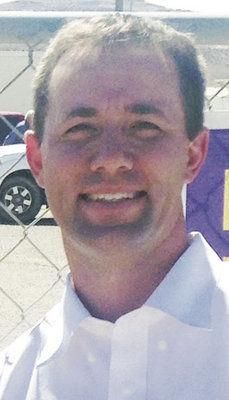Some information may be outdated.
An investigation by the Weber County Sheriff’s Office into claims of electioneering by the San Juan County Clerk has been completed and referred to the Weber County Attorney’s office for review.
Weber County Attorney Christopher F. Allred told the Moab Sun News that his office has received the completed report and would be making recommendations for any ensuing criminal investigation within the next week.
The process comes after John David Nielsen, the San Juan County clerk, told the Salt Lake Tribune that he personally made many copies of a partisan newspaper editorial available to voters inside multiple polling stations during the county’s recent special election.
Attempting to influence voters within or near a polling place, known as electioneering, is a crime punishable by up to a year in jail and a $2,500 fine under Utah state law.
The San Juan County Attorney and Sheriff’s Office referred the matter to Weber County for an outside investigation into the incident.
“The standard practice for dealing with a potential conflict of interest is to get someone else to step in,” said San Juan County Attorney Kendall Laws. “In this case, both the Sheriff and I thought that someone else would be better investigating the matter. We’re grateful that Weber County was able to do both.”
This investigation into the incident was started immediately, Laws reported.
“We take all allegations very seriously,” he said.
Nielsen told reporters that he had decided to provide the editorials because he felt that voters were confused by Proposal 10, a controversial initiative to begin a change of government study committee in the county.
The editorials were spotted by election monitors with the American Civil Liberties Union of Utah. The group had stationed monitoring teams at every polling place in San Juan County for the first time this year after settling a voting rights lawsuit with the county in 2018.
When advised by the ACLU of Utah that the display of such information violated the law, the editorials were removed from polling places.
The reports that a county official entrusted to protect elections instead provided partisan information at an election place left John Mejia, legal director of the ACLU of Utah “incredulous.” The group told the Moab Sun News that it would be reviewing how the election was conducted.
The editorials were written by Blanding Mayor Joe Lyman, a supporter of Proposal 10. Lyman was one of a group of San Juan County residents to circulate a petition putting the possible change of government on the ballot.
Proposal 10 would have launched a one-year study of the county’s form of government, similar to the one by Grand County’s Change of Government Study Committee. Lyman and other supporters of the initiative said they believed expanding the number of commissioners would increase government accountability and representation.
That argument didn’t sway a majority of voters, many of whom viewed the proposal as an attempt to undermine a newly-minted Navajo and Democratic majority on the three-person commission. Davis Filfred, board chair for the regional indigenous advocacy group Utah Diné Bikéyah, released a statement calling the proposal an “attempt to remove Native Americans from office.”
Proposal 10 was defeated by less than 200 votes, with 2,120 votes in opposition and 1,967 in support of the proposed change.
Nielsen could have faced legal charges in a separate case earlier in 2019, after a federal judge rebuked him for backdating documents outside of his legal authority to remove Willie Grayeyes, a candidate for the San Juan County Commission, from the ballot.
In that case, the case was referred to Grand County for investigation. Then-Grand County Attorney Andrew Fitzgerald ultimately declined to prosecute. Fitzgerald said that no criminal statute or election code directly applied to the incident. The attorney believed the issue to be more with a lack of professional knowledge than ill-intent on the part of the clerk.
Grayeyes won his election after being put back on the ballot.
Grayeyes’ candidacy was part of elections held in 2018 resulting in two of the three commission seats going to members of the Navajo Nation. The election of Kenneth Maryboy and Grayeyes also ended many years of Republican control of the county government.
San Juan County voting districts were redrawn after a federal judge ruled in late 2017 that the then-existing commission and school board district boundaries were unconstitutionally drawn, disenfranchising the county’s Navajo population. Demographically, Native Americans comprise about half of the rural area, largely on the Navajo Nation reservation that comprises much of the lower third of the county. The vast majority of these residents were placed within one voting district. The court ruling indicated that this virtually ensured that the San Juan County Commission would retain a white majority.
The voting district boundaries were redrawn after the court decision was handed down.
As part of the 2018 legal settlement with the ACLU of Utah, San Juan County agreed to provide language assistance for Navajo-speaking voters and work with the Navajo Nation Human Rights Commission.
In a press release on Oct. 22, the group noted that the county had missed legally-mandated deadlines during the special election, airing required Navajo-language radio ads and descriptions of the election late and mailed ballots to some voters well before the official window for mail-in balloting began.
Weber County will determine if criminal charges apply
Appreciate the coverage? Help keep local news alive.
Chip in to support the Moab Sun News.





